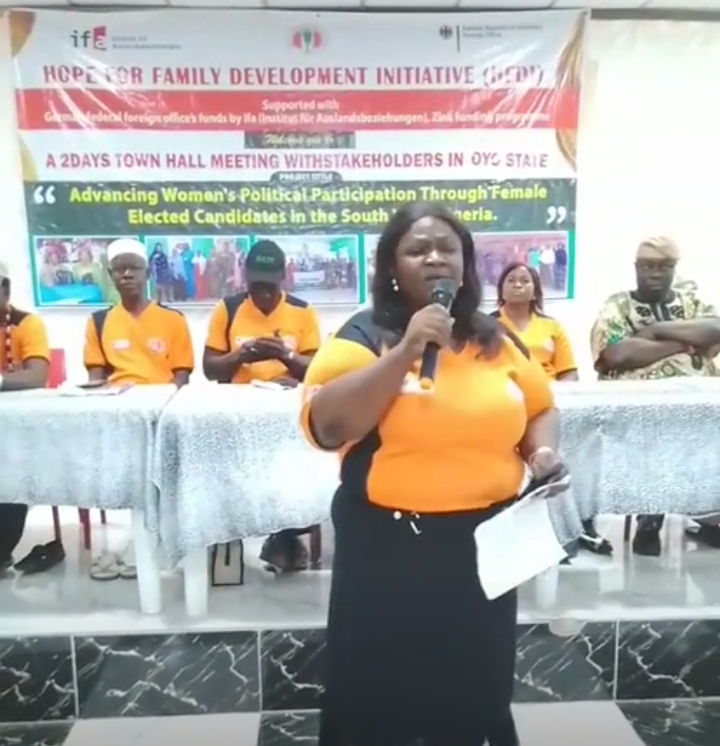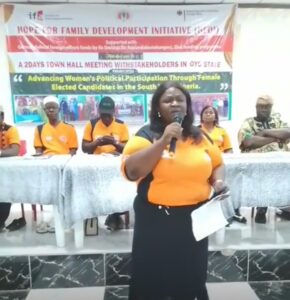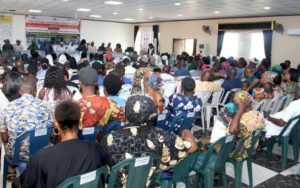Increasing Female Representation In Politics Will Enhance Democratic Governance And Development – HFDI Tells Oyo Stakeholders
Hope for Family Development Initiatives HFDI has asserted that increasing female representation in politics will enhance democratic governance and development in Nigeria.
This was disclosed in a opening remarks by HFDI program manager, Mrs Adeola Falana, at the town hall meeting organized by the organization in collaboration with German Missions in Nigeria, on advancing women’s political participation in Southwest Nigeria.
Falana opined that the town hall meeting is to set the stage for continued efforts to breakdown barriers and create a more equitable political landscape for elected females, and aspirants in the South West region.
At the program organised for political stakeholders, to enhance their support and election of female candidates in Oyo State, the town hall meeting which held at Oyo township, brought together diverse group of stakeholders.
The HFDI Oyo town hall meeting outlined, the objectives of the project such as focusing on strategies to support and increase the number of women elected to political positions in the region.
Experts and experienced politicians who shared strategies that have been effective in other regions, maintained that mentorship programs, advocacy for gender quotas, and targeted training programs for female candidates, are important tools for enhancing female participants success in politics.
The program which was interactive in nature, treated the female aspirants concerns, ideas, and solutions were proposed, all in a bid to enhance women’s political participation.
The discussions underscored the need for community support and the role of men as allies in promoting gender equality, and also equipped potential female candidates with the skills necessary to run successful campaigns equality.
At the end of the Zivik Funding Programme for town hall meeting, the stakeholders expressed strong commitment to supporting female candidates and working towards more inclusive political processes.
The participating groups included community leaders, political figures, civil society organizations, and advocates for gender equality, among others.




